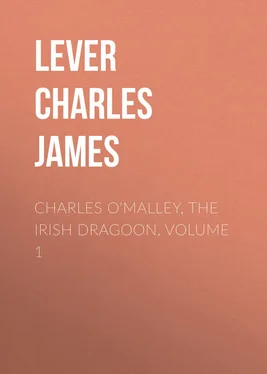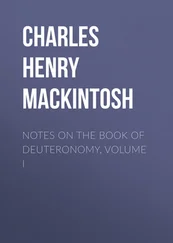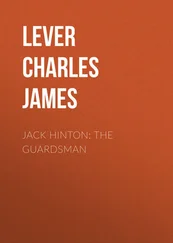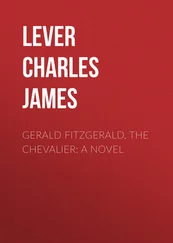Charles Lever - Charles O'Malley, The Irish Dragoon, Volume 1
Здесь есть возможность читать онлайн «Charles Lever - Charles O'Malley, The Irish Dragoon, Volume 1» — ознакомительный отрывок электронной книги совершенно бесплатно, а после прочтения отрывка купить полную версию. В некоторых случаях можно слушать аудио, скачать через торрент в формате fb2 и присутствует краткое содержание. Издательство: Иностранный паблик, Жанр: literature_19, foreign_antique, foreign_prose, на английском языке. Описание произведения, (предисловие) а так же отзывы посетителей доступны на портале библиотеки ЛибКат.
- Название:Charles O'Malley, The Irish Dragoon, Volume 1
- Автор:
- Издательство:Иностранный паблик
- Жанр:
- Год:неизвестен
- ISBN:нет данных
- Рейтинг книги:4 / 5. Голосов: 1
-
Избранное:Добавить в избранное
- Отзывы:
-
Ваша оценка:
- 80
- 1
- 2
- 3
- 4
- 5
Charles O'Malley, The Irish Dragoon, Volume 1: краткое содержание, описание и аннотация
Предлагаем к чтению аннотацию, описание, краткое содержание или предисловие (зависит от того, что написал сам автор книги «Charles O'Malley, The Irish Dragoon, Volume 1»). Если вы не нашли необходимую информацию о книге — напишите в комментариях, мы постараемся отыскать её.
Charles O'Malley, The Irish Dragoon, Volume 1 — читать онлайн ознакомительный отрывок
Ниже представлен текст книги, разбитый по страницам. Система сохранения места последней прочитанной страницы, позволяет с удобством читать онлайн бесплатно книгу «Charles O'Malley, The Irish Dragoon, Volume 1», без необходимости каждый раз заново искать на чём Вы остановились. Поставьте закладку, и сможете в любой момент перейти на страницу, на которой закончили чтение.
Интервал:
Закладка:
“‘Ah, alas! poor defenceless women learn, too late, how constantly associated is the retiring modesty which decries, with the pleasing powers which ensure success – ’
“Here she sobbed, Billy blushed, and the clock struck nine.
“‘May I then beg, madam – ’
“‘Yes, yes, you shall hear it all; but my poor scattered faculties will not be the clearer by your hurrying me. You know, perhaps,’ continued she, ‘that my maiden name was Rogers?’ He of the blankets bowed, and she resumed, ‘It is now eighteen years since, that a young, unsuspecting, fond creature, reared in all the care and fondness of doting parents, tempted her first step in life, and trusted her fate to another’s keeping. I am that unhappy person; the other, that monster in human guise that smiled but to betray, that won but to ruin and destroy, is he whom you know as Sir Harry Boyle.’
“Here she sobbed for some minutes, wiped her eyes, and resumed her narrative. Beginning at the period of her marriage, she detailed a number of circumstances in which poor Calvert, in all his anxiety to come au fond at matters, could never perceive bore upon the question in any way; but as she recounted them all with great force and precision, entreating him to bear in mind certain circumstances to which she should recur by and by, his attention was kept on the stretch, and it was only when the clock struck ten that he was fully aware how his morning was passing, and what surmises his absence might originate.
“‘May I interrupt you for a moment, dear madam? Was it nine or ten o’clock which struck last?’
“‘How should I know?’ said she, frantically. ‘What are hours and minutes to her who has passed long years of misery?’
“‘Very true, very true,’ replied he, timidly, and rather fearing for the intellect of his fair companion.
She continued. The narrative, however, so far from becoming clearer, grew gradually more confused and intricate; and as frequent references were made by the lady to some previous statement, Calvert was more than once rebuked for forgetfulness and inattention, where in reality nothing less than short-hand could have borne him through.
“‘Was it in ‘93 I said that Sir Harry left me at Tuam?’
“‘Upon my life, madam, I am afraid to aver; but it strikes me – ’
“‘Gracious powers! and this is he whom I fondly trusted to make the depository of my woes! Cruel, cruel man!’
“Here she sobbed considerably for several minutes, and spoke not. A loud cheer of ‘Butler forever!’ from the mob without now burst upon their hearing, and recalled poor Calvert at once to the thought that the hours were speeding fast and no prospect of the everlasting tale coming to an end.
“‘I am deeply, most deeply grieved, my dear madam,’ said the little man, sitting up in a pyramid of blankets; ‘but hours, minutes, are most precious to me this morning. I am about to be proposed as member for Kilkenny.’
“At these words the lady straightened her figure out, threw her arms at either side, and burst into a fit of laughter which poor Calvert knew at once to be hysterics. Here was a pretty situation! The bell-rope lay against the opposite wall; and even if it did not, would he be exactly warranted in pulling it?
“‘May the devil and all his angels take Sir Harry Boyle and his whole connection to the fifth generation!’ was his sincere prayer as he sat like a Chinese juggler under his canopy.
“At length the violence of the paroxysm seemed to subside; the sobs became less frequent, the kicking less forcible, and the lady’s eyes closed, and she appeared to have fallen asleep.
“‘Now is the moment,’ said Billy. ‘If I could only get as far as my dressing-gown.’ So saying, he worked himself down noiselessly to the foot of his bed, looked fixedly at the fallen lids of the sleeping lady, and essayed one leg from the blanket. ‘Now or never,’ said he, pushing aside the curtain and preparing for a spring. One more look he cast at his companion, and then leaped forth; but just as he lit upon the floor she again roused herself, screaming with horror. Billy fell upon the bed, and rolling himself in the bedclothes, vowed never to rise again till she was out of the visible horizon.
“‘What is all this? What do you mean, sir?’ said the lady, reddening with indignation.
“‘Nothing, upon my soul, madam; it was only my dressing-gown.’
“‘Your dressing-gown!’ said she, with an emphasis worthy of Siddons; ‘a likely story for Sir Harry to believe, sir! Fie, fie, sir!’
“This last allusion seemed a settler; for the luckless Calvert heaved a profound sigh, and sunk down as if all hope had left him. ‘Butler forever!’ roared the mob. ‘Calvert forever!’ cried a boy’s voice from without. ‘Three groans for the runaway!’ answered this announcement; and a very tender inquiry of, ‘Where is he?’ was raised by some hundred mouths.
“‘Madam,’ said the almost frantic listener, – ‘madam, I must get up! I must dress! I beg of you to permit me!’
“‘I have nothing to refuse, sir. Alas, disdain has long been my only portion! Get up, if you will.’
“‘But,’ said the astonished man, who was well-nigh deranged at the coolness of this reply, – ‘but how am I to do so if you sit there?’
“‘Sorry for any inconvenience I may cause you; but in the crowded state of the hotel I hope you see the impropriety of my walking about the passages in this costume?’
“‘And, great God! madam, why did you come out in it?’
“A cheer from the mob prevented her reply being audible. One o’clock tolled out from the great bell of the cathedral.
“‘There’s one o’clock, as I live!’
“‘I heard it,’ said the lady.
“‘The shouts are increasing. What is that I hear? “Butler is in!” Gracious mercy! is the election over?’
“The lady stepped to the window, drew aside the curtain, and said, ‘Indeed, it would appear so. The mob are cheering Mr. Butler.’ A deafening shout burst from the street. ‘Perhaps you’d like to see the fun, so I’ll not detain you any longer. So, good-by, Mr. Calvert; and as your breakfast will be cold, in all likelihood, come down to No. 4, for Sir Harry’s a late man, and will be glad to see you.’”
CHAPTER XI
As thus we lightened the road with chatting, the increasing concourse of people, and the greater throng of carriages that filled the road, announced that we had nearly reached our destination.
“Considine,” said my uncle, riding up to where we were, “I have just got a few lines from Davern. It seems Bodkin’s people are afraid to come in; they know what they must expect, and if so, more than half of that barony is lost to our opponent.”
“Then he has no chance whatever.”
“He never had, in my opinion,” said Sir Harry.
“We’ll see soon,” said my uncle, cheerfully, and rode to the post.
The remainder of the way was occupied in discussing the various possibilities of the election, into which I was rejoiced to find that defeat never entered.
In the goodly days I speak of, a county contest was a very different thing indeed from the tame and insipid farce that now passes under that name: where a briefless barrister, bullied by both sides, sits as assessor; a few drunken voters, a radical O’Connellite grocer, a demagogue priest, a deputy grand-purple-something from the Trinity College lodge, with some half-dozen followers, shouting, “To the Devil with Peel!” or “Down with Dens!” form the whole corp-de-ballet . No, no; in the times I refer to the voters were some thousands in number, and the adverse parties took the field, far less dependent for success upon previous pledge or promise made them than upon the actual stratagem of the day. Each went forth, like a general to battle, surrounded by a numerous and well-chosen staff, – one party of friends, acting as commissariat, attended to the victualling of the voters, that they obtained a due, or rather undue allowance of liquor, and came properly drunk to the poll; others, again, broke into skirmishing parties, and scattered over the country, cut off the enemy’s supplies, breaking down their post-chaises, upsetting their jaunting-cars, stealing their poll-books, and kidnapping their agents. Then there were secret-service people, bribing the enemy and enticing them to desert; and lastly, there was a species of sapper-and-miner force, who invented false documents, denied the identity of the opposite party’s people, and when hard pushed, provided persons who took bribes from the enemy, and gave evidence afterwards on a petition. Amidst all these encounters of wit and ingenuity, the personal friends of the candidate formed a species of rifle brigade, picking out the enemy’s officers, and doing sore damage to their tactics by shooting a proposer or wounding a seconder, – a considerable portion of every leading agent’s fee being intended as compensation for the duels he might, could, would, should, or ought to fight during the election. Such, in brief, was a contest in the olden time. And when it is taken into consideration that it usually lasted a fortnight or three weeks; that a considerable military force was always engaged (for our Irish law permits this), and which, when nothing pressing was doing, was regularly assailed by both parties; that far more dependence was placed in a bludgeon than a pistol; and that the man who registered a vote without a cracked pate was regarded as a kind of natural phenomenon, – some faint idea may be formed how much such a scene must have contributed to the peace of the county, and the happiness and welfare of all concerned in it.
Читать дальшеИнтервал:
Закладка:
Похожие книги на «Charles O'Malley, The Irish Dragoon, Volume 1»
Представляем Вашему вниманию похожие книги на «Charles O'Malley, The Irish Dragoon, Volume 1» списком для выбора. Мы отобрали схожую по названию и смыслу литературу в надежде предоставить читателям больше вариантов отыскать новые, интересные, ещё непрочитанные произведения.
Обсуждение, отзывы о книге «Charles O'Malley, The Irish Dragoon, Volume 1» и просто собственные мнения читателей. Оставьте ваши комментарии, напишите, что Вы думаете о произведении, его смысле или главных героях. Укажите что конкретно понравилось, а что нет, и почему Вы так считаете.












